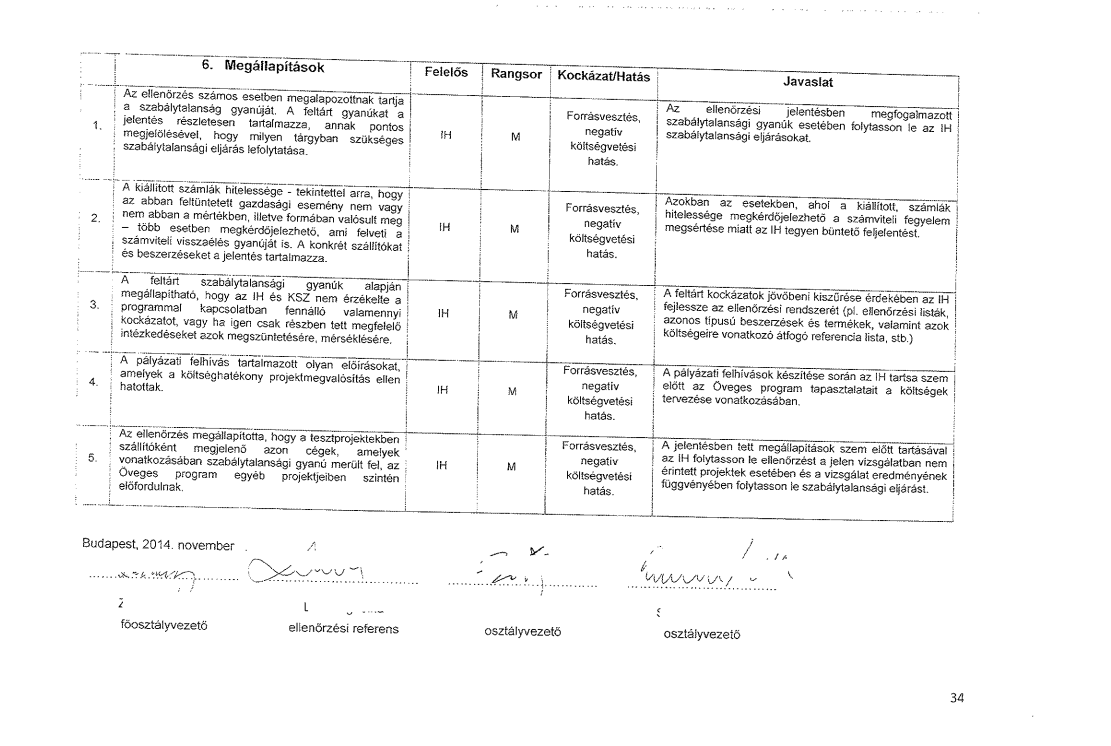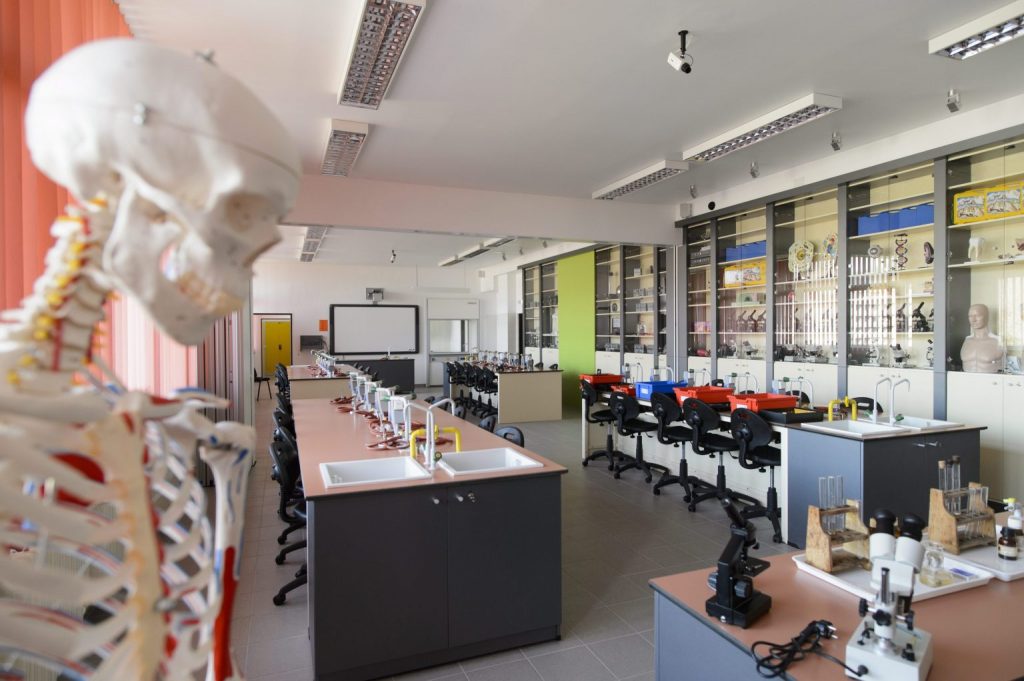The https://english.atlatszo.hu use cookies to track and profile customers such as action tags and pixel tracking on our website to assist our marketing. On our website we use technical, analytical, marketing and preference cookies. These are necessary for our site to work properly and to give us inforamation about how our site is used. See Cookies Policy
Hungary had to repay €7.8 million due to irregularities in EU funded program
Although the Hungarian government has kept the exact amount secret for years, Átlátszó managed to find out that Hungary has had to repay €7.8 million (nearly 2.8 billion HUF at today’s exchange rate) in EU funding because of misused money from the Öveges Programme and other irregular European Social Fund applications. At today’s exchange rate, the municipalities running the schools spent nearly HUF 19 billion in EU funding on the programme to improve science education in secondary schools. The case has been under investigation for seven years on suspicion of budget fraud causing particularly serious financial damage. Last year the prosecutor’s office brought charges, but it is still not known when those responsible will be brought to justice.
The Öveges Programme was launched in 2014, the goal was to improve the teaching of science subjects. The call for proposals was launched under the Operational Programme for Social Renewal (TÁMOP-3.1.3-10/1-2 and 3.1.3-11/1-2) and was open to organisations running secondary schools (central budgetary bodies, municipalities, churches, foundations). The funding was earmarked for the upgrading of laboratories (physics and chemistry classrooms) in 43 schools in rural areas and in the capital, with each city having a budget of around HUF 300 million. The winning applicants also spent the grant on student workbooks, project management, teacher’s guides, professional days and IT upgrades. The EU’s anti-fraud office (OLAF) and the Hungarian authorities also found irregularities in connection with these contracts.

Repayment of nearly HUF 3 billion
The European Commission’s Representation in Budapest has informed Atlatszo that the Öveges Programme, which received a total of €53.3 million (HUF 18.9 billion at today’s exchange rate) in 2015, was audited by the European Commission and irregularities were found. As a result, EU payments under the European Social Fund (ESF) programme, which financed the operation affected by the deficiencies, were suspended in 2015. The Hungarian authorities subsequently implemented the necessary corrective measures to improve the management and control system and the suspension of ESF payments was lifted in 2016.
So far, only estimates of the amount of repayments due to the Öveges íprogramme have been published due to government secrecy. But now a source in Brussels has revealed that audits have revealed that serious irregularities may have occurred in other ESF operational programmes besides the Öveges Programme.
The Hungarian authorities have therefore made a flat-rate correction for the programme and additional financial corrections for some of the irregularities detected, totalling €7.8 million (nearly HUF 2.8 billion at today’s exchange rates), according to our source.
3 defendants after 7 years of investigation
In 2014, Ákos Hadházy (then LMP, now independent MP) drew attention to the abuses related to the Öveges Programme. The European Anti-Fraud Office (OLAF) found serious irregularities in public procurement related to the programme’s expenditure. On his Corruption Info page, Hadházy has published a detailed report on the irregularities found in the programme, and a report confirming that the Prime Minister’s Office had already noticed the abuses in 2014.

Details from a 2014 report of the Audit Department of the Prime Minister’s Office on the Öveges Programme.
Hadházy pointed out in an earlier Facebook post on the case that the ” National Tax and Customs Office had already stated as a fact in 2016 that it was investigating “criminal conspiracy”. It was already described at the time that the conduct of transactions involving a complex network of companies was “centrally organised”, i.e. the participants did not apply spontaneously for the tenders of the various schools, but someone organised the allocation of the tenders.”
The prosecution asks for suspended prison sentences
Hadházy reported that last year that the prosecution brought charges against 3 people in the case, but the MP said the indictment may not be a call to account for the real culprits of the billionaire scam.
“In 43 cities, 300 million HUF have been spent to renovate one physics/chemistry classroom per high school. Hundreds of millions per city were stolen by writing the same textbooks in each city (often verbatim), paying 25 million for textbook editing(!) in each city and buying “classroom occupancy monitoring software” for 25 million in each city. The public procurement was won in a demonstrably manipulated way by a well-defined group of companies, and this was only possible because the mayors of the cities concerned were instructed to do so. In comparison, I was surprised to read a few months ago that there are now a total of 3 (three!) suspects, and they are only very minor minor players.”
We contacted the prosecutor’s office to find out where the case stands now, after the indictment last October. We received the following information from the press spokeswoman of the Tolna County Prosecutor General’s Office, Dr. Yvette Kiss:
“In connection with the Öveges Programme – i.e. the tender entitled “Renewal of the methodology and tools of science education in public education” – the Tolna County Prosecutor General’s Office submitted an indictment dated 18 October 2021 to the Gyula District Court with jurisdiction and competence in the case conducted by the Tolna County Investigation Department of the South Transdanubian Criminal Directorate of the National Tax and Customs Office. The District Court filed the indictment on 21 October 2021.
Three defendants were charged, two of them with the offence of budget fraud causing particularly large financial loss, one of them with the offence of budget fraud causing substantial financial loss, committed as indirect perpetrators, and all three defendants were charged with the offence of continued use of forged private documents.
The General Prosecutor’s Office has proposed suspended prison sentences and fines for all the defendants, as well as a ban on them from holding executive positions in the company. With the indictment, the case has entered the court phase, but the date of the preparatory session has not yet been set.”
Written and translated by Gabriella Horn. The original, more detailed Hungarian version of this article can be found here.
Hungary. What do you know about Hungary? from atlatszo.hu on Vimeo.
Share:
Your support matters. Your donation helps us to uncover the truth.
- PayPal
- Bank transfer
- Patreon
- Benevity
Support our work with a PayPal donation to the Átlátszónet Foundation! Thank you.
Support our work by bank transfer to the account of the Átlátszónet Foundation. Please add in the comments: “Donation”
Beneficiary: Átlátszónet Alapítvány, bank name and address: Raiffeisen Bank, H-1054 Budapest, Akadémia utca 6.
EUR: IBAN HU36 1201 1265 0142 5189 0040 0002
USD: IBAN HU36 1201 1265 0142 5189 0050 0009
HUF: IBAN HU78 1201 1265 0142 5189 0030 0005
SWIFT: UBRTHUHB
Be a follower on Patreon
Support us on Benevity!

